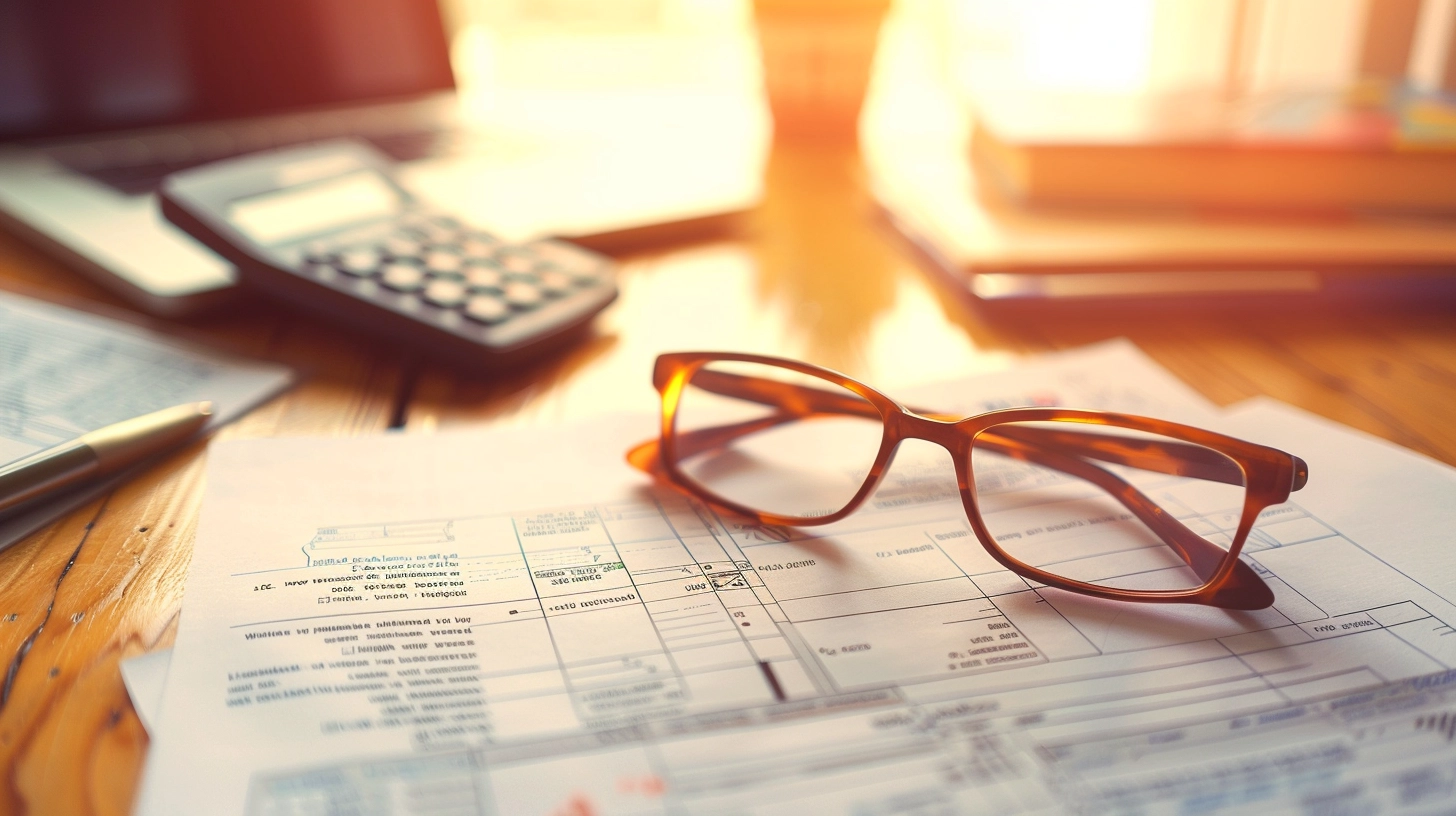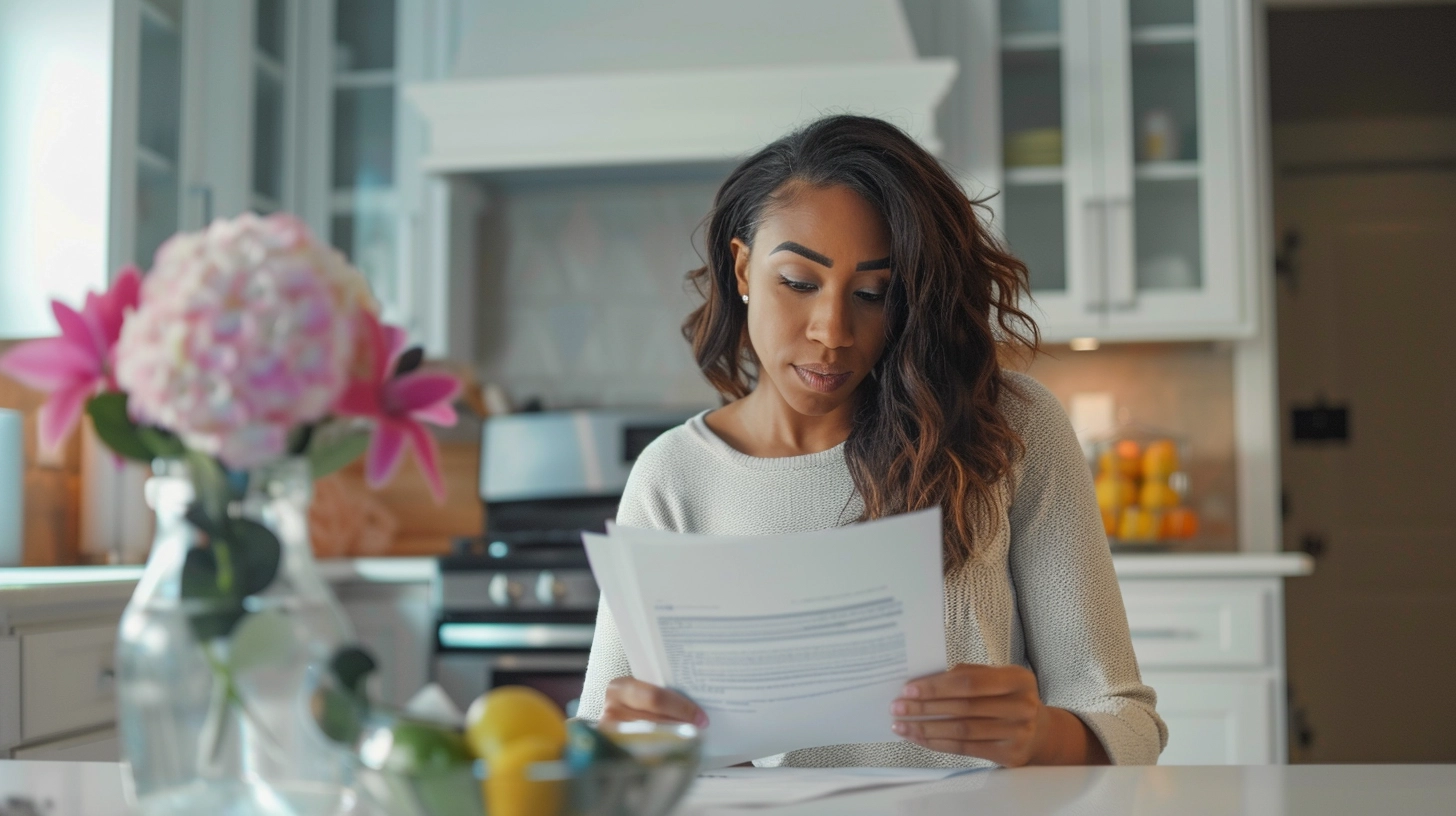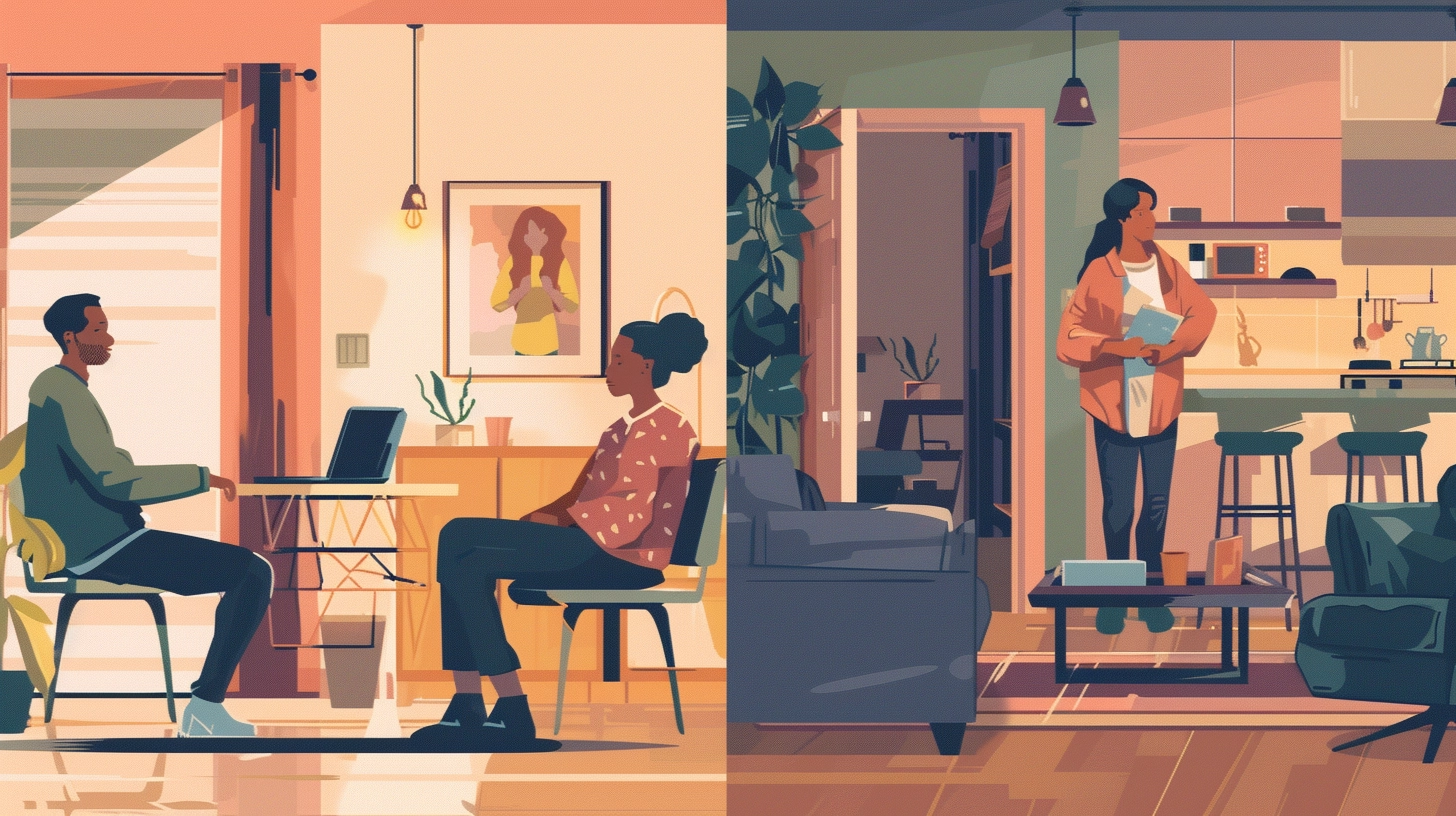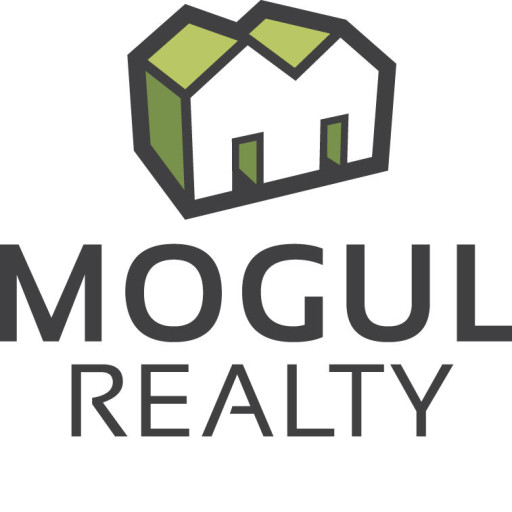Introduction to First Time Renting:
Embarking on the journey of renting your first apartment or house can be both thrilling and a bit overwhelming. At Mogul Realty, we understand that stepping into the world of leasing for the first time brings its set of challenges and questions. Whether you’re a first-time home renter, looking into tips for renting an apartment, or seeking advice for first-time renters, you’ve come to the right place. Our aim is to make your rental experience as smooth and enjoyable as possible. From navigating through first-time renter friendly apartments to understanding the ins and outs of your lease agreement, we’re here to guide you every step of the way. Let’s dive into the essentials of renting, ensuring you’re well-prepared to find that perfect place to call home.

A young couple browsing apartment listings on a laptop, with a clear budget plan and calculator beside them.
Section 1: Understanding What You Can Afford
When it comes to renting your first apartment, knowing what you can afford is crucial. It’s easy to get swept away by the excitement of finding your first place, but your dream home needs to fit within your budget. Start by taking a close look at your finances. How much are you bringing in each month? What are your regular expenses? Remember, rent isn’t your only expense. You’ll also need to cover utilities, internet, and maybe renter’s insurance. It’s a good idea to use an online budget calculator. These tools help you see how much rent you can comfortably afford without stretching yourself too thin.
Next, think about saving for a security deposit. This can sometimes be as much as a month’s rent, so plan to have that extra cash on hand. Lastly, consider the additional costs that might not come up monthly but are still important. Do you have pets? Some places charge a pet fee. Planning for all these expenses will make your renting experience much smoother and prevent any financial surprises. Remember, staying within your budget will ensure you enjoy your new home to the fullest, without the stress of stretching your finances too thin.

First-time renter and their co-signer sitting at a table with a real estate agent
Section 2: Finding First-Time Renter-Friendly Apartments
Finding an apartment that welcomes first-time renters can sometimes feel like searching for a needle in a haystack. But don’t worry, they’re out there, and we’re here to help you find them. Start by searching for listings that highlight “first-time renter friendly” or similar phrases. These landlords understand that everyone has to start somewhere and are more likely to work with you despite your lack of rental history.
Another tip is to be upfront when you talk to landlords or property managers. Let them know you’re a first-time renter. Some might require a co-signer or a slightly higher security deposit, but don’t let this discourage you. It’s just a part of the process.
Don’t forget to check out online forums and social media groups focused on housing in your area. Sometimes, the best opportunities come from word of mouth. And finally, consider working with a real estate agent. They’re experts in the housing market and can often point you in the direction of first-time renter-friendly options you might not have found on your own. With a little patience and these strategies, you’ll find a great place to call your first home.

A map with pins pointing out places on interest.
Section 3: The Importance of Location
Choosing the right location is as important as picking the perfect apartment. Think about what matters most to you. Is it being close to work or school, or maybe you love being where the action is, near restaurants and entertainment? Your ideal spot could also be a quiet neighborhood, away from the hustle and bustle. Take your time to visit different areas to see which feels like home.
Remember, the perfect location can affect your daily life in big ways. Consider your commute. Living closer to work or school can save you time and stress. Also, think about safety. Do some research or talk to locals about the areas you’re interested in. Lastly, check out the amenities nearby. Having shops, parks, or a gym close by can make life more convenient and enjoyable.
Finding the right location takes a bit of research, but it’s worth it. After all, your home isn’t just about the four walls you live in; it’s also about the community around you.

An organized workspace with a rental application ready to be double-checked.
Section 4: Preparing Your Rental Application
Getting your rental application ready is a key step in securing your new home. Start by gathering all the documents you’ll need. This usually includes your ID, pay stubs, or other proof of income, and sometimes a letter of employment. If you’re a first-time renter, think about asking a parent or another adult to be your co-signer. This can make your application stronger.
Next, references are important. They can be from your job, past teachers, or anyone else who can speak to your responsibility. Make sure to ask them ahead of time if they’re okay with being your reference.
Also, write a short introduction about yourself to include with your application. Share a bit about who you are, why you’re moving, and what makes you a great tenant. This personal touch can help your application stand out.
Finally, double-check your application before sending it. Make sure all the information is correct and you’ve included everything needed. A complete and accurate application shows you’re serious and organized, making a good impression on your future landlord.

A close-up of a lease agreement on a wooden table, with highlighted sections about rent and utilities.
Section 5: Reading and Understanding Your Lease
Reading and understanding your lease is crucial. This document is the agreement between you and your landlord. It tells you your rights and what’s expected of you. First, look at the rent details. Make sure you know how much you need to pay, when it’s due, and how to pay it. Also, check if utilities are included or if you’ll pay those separately.
Next, find out what the rules are. Can you have pets? What about painting the walls or hanging pictures? Your lease should tell you what changes you can make to the apartment.
Also, see what it says about ending the lease early. Sometimes life changes, and you might need to move out before your lease is up. Know what the process is and if there are any fees.
Finally, don’t rush. Take your time to read the entire lease. If there’s anything you don’t understand, ask questions. It’s better to ask now than be surprised later. Remember, signing a lease is a big step. Understanding what you’re agreeing to is key to a good renting experience.

A women sitting at a kitchen table, reading a lease document with a serious expression.
Section 6: Tips for a Successful Tenancy
Having a successful tenancy is all about good habits and communication. First, always pay your rent on time. If you can, set up automatic payments. This way, you’ll never miss a due date. If there’s ever a time when you might be late, talk to your landlord early. They might understand and work with you.
Next, take care of your home. Small problems can turn into big ones if ignored. So, if something breaks or doesn’t work right, tell your landlord right away. It’s their job to fix things like leaks or heating problems.
Also, be a good neighbor. Keeping noise down and being friendly makes living there better for everyone. Remember, you’re part of a community.
Lastly, know your rights and responsibilities. This means understanding your lease and local renting laws. If you ever have questions, it’s okay to ask for advice.
By following these tips, you’ll not only enjoy your home more but also build a strong relationship with your landlord. This can make your renting experience smoother and more enjoyable.

A split-screen style artwork showing two renters.
Conclusion:
As we wrap up our guide for first-time renters, remember, finding and moving into your first apartment is a big step. It’s the start of a new chapter in your life. By following the tips we’ve shared, from understanding what you can afford, to finding renter-friendly apartments, considering location, preparing your rental application, reading your lease carefully, and aiming for a successful tenancy, you’re setting yourself up for a great start.
Remember, renting for the first time can feel a bit scary, but it’s also exciting. It’s all about taking it one step at a time. Don’t rush your decisions. Take the time to find a place that feels like home and fits your budget. And always, communicate openly with your landlord. Good communication can solve most problems before they become big issues.
Good luck on your renting journey! With a bit of preparation and knowledge, you’ll find the perfect first home. And who knows? This could be the start of a savvy renter’s adventure, leading to many more happy homes in the future.

